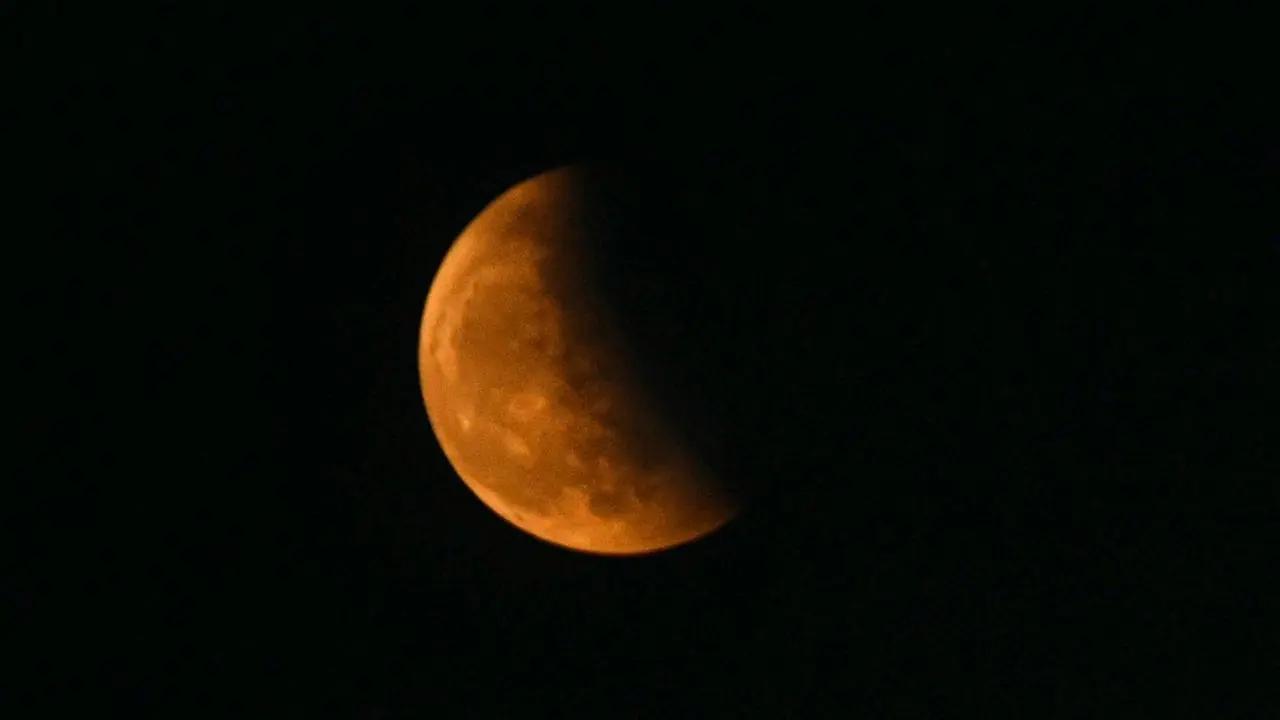The first eclipse of 2024 will occur early morning of March 25

Representation image. File pic/PTI
A lunar eclipse is an astronomical event that occurs when the Moon moves into the Earth's shadow, causing the Moon to be darkened. Such an alignment occurs during an eclipse season, approximately every six months, during the full moon phase. It is also called Chandra Grahan in Indian languages.
ADVERTISEMENT
The first eclipse of 2024 will occur early morning of March 25. This eclipse will be a penumbral lunar eclipse, offering a unique opportunity to witness the Earth's subtle influence on the Moon. This year's lunar eclipse coincides with the Holi festival in India, marking a rare occurrence.
Unlike a total lunar eclipse where the Moon is completely cloaked in Earth's shadow, a penumbral eclipse is a more delicate. Here, the Moon enters the penumbra, the faint outer region of Earth's shadow, which causes a slight dimming of the Moon's surface, but the effect is often subtle to the naked eye.
The beauty of a penumbral eclipse is its accessibility. Unlike a solar eclipse, where special eye protection is crucial, viewing a lunar eclipse is completely safe for your eyes. Binoculars or a telescope can enhance your view, but the eclipse is still observable with the naked eye.
The penumbral eclipse will begin from 10:23 am on Monday morning and remain visible to all of North and South America. People in India will however not be able to view the phenomenon. The lunar eclipse will be visible in parts of Ireland, Belgium, Spain, England, South Norway, Italy, Portugal, Russia, Germany, the United States, Japan, Switzerland, Netherlands and France.
In Hindu culture, lunar eclipse is considered 'sutak' period (which begins nine hours prior to the eclipse). Traditionally, temples are shut for darshan for devotees. However, as the lunar eclipse will not be visible in India on Monday, there will be no sutak period will be observed and there will be no restrictions on visiting temples.
In Hindu culture, it is typically advised to avoid performing religious activities or starting auspicious work during this time. However, the astronomy lovers mark their calendars to witness the eclipse.
 Subscribe today by clicking the link and stay updated with the latest news!" Click here!
Subscribe today by clicking the link and stay updated with the latest news!" Click here!







